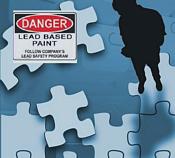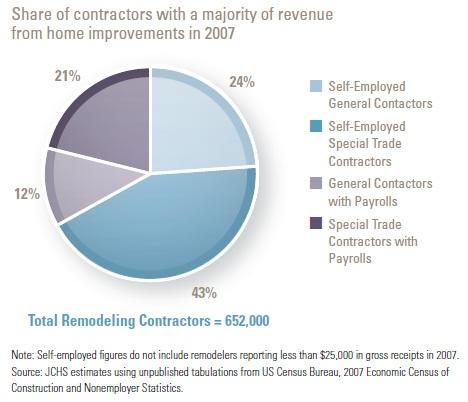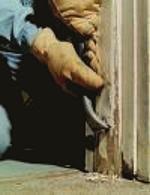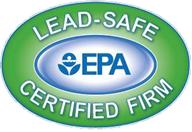Updates on MA RRP Rule From The MA Department of Labor Standards
 As EPA amends the RRP rule, renovators working in states that have taken over the rule from EPA need to know if and how these states incorporate the changes into their own rule. Yesterday I inquired with the State of Massachusetts to find out about a few recent amendments and changes.
As EPA amends the RRP rule, renovators working in states that have taken over the rule from EPA need to know if and how these states incorporate the changes into their own rule. Yesterday I inquired with the State of Massachusetts to find out about a few recent amendments and changes.
One of the good things about the state of Massachusetts taking over the RRP rule is that communications with the Department of Labor Standards (DLS) is much easier and much quicker than trying to get answers from EPA. I also find their staff is much more informed and always helpful. The Q&A below was conducted completely via email (I sent the questions out of the blue) and I got a complete and what I would call an intuitive response in less than 4 hours! Credit to the DLS!
Here is the Q&A
 Question: Can you tell me if MA allows the lead safe renovation supervisor to take paint chip samples same as EPA does?
Question: Can you tell me if MA allows the lead safe renovation supervisor to take paint chip samples same as EPA does?
DLS Answer: Massachusetts incorporates the federal protocol by reference in our regulation. LSR Supervisors are authorized to sample painted surfaces in accordance with their training. Of course, they must do adequate sampling for different painting histories of surfaces, document their findings, maintain records of testing and provide documentation to the property owner as required.
Question: Does MA require that the firm provide the renovation checklist to owners and tenants within 30 days of completion of final billing, whichever comes first (just like EPA)?
DLS Answer: Yes. DLS has the same documentation requirements as the federal rule.
Question: EPA requires towns and municipalities to become certified firms and have Certified Renovators before doing their own RRP work on town properties that are target housing and or Child Occupied Facilities. They can however hire out the work to a Certified Firm and therefore would not need to be a Certified Firm if the work is hired out to one. Does the Massachusetts law follow the same requirements?
DLS Answer: Yes. Massachusetts mirrors the requirement but offers the opportunity for the fee to be waived for property owners with trained employees working on their own properties.
You can find them listed on our LSRC list published on the DLS web pages.
 Question: Also, does MA now recognize LeadCheck for Drywall and Plaster?
Question: Also, does MA now recognize LeadCheck for Drywall and Plaster?
DLS Answer: Yes. But as usual, there is a caveat which is also applicable at the federal level. When the trained individual takes a sample – s/he must follow the prescribed protocols. In order to take advantage of the new approval; they must follow the new testing methods and adequately test surfaces. In some cases, many samples must be taken in order to effectively disclude the work under the rule.
Training Providers will likely being teaching the new methods, however, those who were previously trained will need to justify that they know how to sample in order to validate their findings. Of course, the safest path is to presume the presence of lead.
Question: Any other updates or clarifications I should know about?
DLS Answer: I know you are aware that DLS has been doing enforcement and civil penalties. We are still interested to have the regulated community provide us feedback to provide better regulations. I don’t have a specific date but we will certainly let you know when we are going back to public hearings to update our regulation.
Its spring and we are in the field doing compliance checks.

 Looking for accurate information about the EPA RRP rule?
Looking for accurate information about the EPA RRP rule? 
 In reality what they have done has not been effective. Either the message is not effective, the placement is not effective or both. According to a
In reality what they have done has not been effective. Either the message is not effective, the placement is not effective or both. According to a 

 So far EPA has only published one violation since the rule came into effect in April of 2010. On the other hand the state of Massachusetts took over the rule in July of 2012 and has
So far EPA has only published one violation since the rule came into effect in April of 2010. On the other hand the state of Massachusetts took over the rule in July of 2012 and has  It is a fact that lead is poisonous and RRP activities can cause poisoning. However, EPA does not know how many children were actually poisoned by RRP activities before the rule came into effect. If you check any of the data it refers to RRP activities as the “likely source” of lead poisoning, not “the cause”. That being the case, EPA has no way to know if the RRP rule is making a difference or not. It is ‘likely” that it is helping. But, without knowing where EPA started and where we are now that the rule has been in place for almost a year, EPA has no idea if what they have been doing is effective enough and or if or where it can improve effectiveness within the rule.
It is a fact that lead is poisonous and RRP activities can cause poisoning. However, EPA does not know how many children were actually poisoned by RRP activities before the rule came into effect. If you check any of the data it refers to RRP activities as the “likely source” of lead poisoning, not “the cause”. That being the case, EPA has no way to know if the RRP rule is making a difference or not. It is ‘likely” that it is helping. But, without knowing where EPA started and where we are now that the rule has been in place for almost a year, EPA has no idea if what they have been doing is effective enough and or if or where it can improve effectiveness within the rule.  On the other hand, since taking over the RRP Rule in MA, working with MA state officials has been much more productive. The Massachusetts Department of Labor Standards (DLS), formally called the Massachusetts Division of Occupational Safety, under the leadership of the department's Director Heather Rowe, has been very receptive to meeting with concerned stakeholders, hearing and recognizing stakeholder's concerns, and working with stakeholders to address their concerns. Currently, in addition to working on amendments to the RRP regulations in MA to address concerns, the DLS is also finalizing their plans to step up enforcement and compliance actions this spring as the home improvement season begins. Is it happening as fast as we all might like, no. However, based on budget and resource realities, I think DLS is doing a good job listening and prioritizing their efforts.
On the other hand, since taking over the RRP Rule in MA, working with MA state officials has been much more productive. The Massachusetts Department of Labor Standards (DLS), formally called the Massachusetts Division of Occupational Safety, under the leadership of the department's Director Heather Rowe, has been very receptive to meeting with concerned stakeholders, hearing and recognizing stakeholder's concerns, and working with stakeholders to address their concerns. Currently, in addition to working on amendments to the RRP regulations in MA to address concerns, the DLS is also finalizing their plans to step up enforcement and compliance actions this spring as the home improvement season begins. Is it happening as fast as we all might like, no. However, based on budget and resource realities, I think DLS is doing a good job listening and prioritizing their efforts. As one way to continue their efforts and interact with stakeholders, the Massachusetts Department of Labor Standards is looking for additional input from contractors and lead industry practitioners in anticipation of making amendments to the MA RRP regulations. An official from this agency will be participating in a May 18 workshop on the RRP Rule being held in Marlborough, MA sponsored by the Lead and Environmental Hazards Association (LEHA) and will be discussing the Department’s plans for revising the RRP regulations as well as the Department's enforcement efforts.
As one way to continue their efforts and interact with stakeholders, the Massachusetts Department of Labor Standards is looking for additional input from contractors and lead industry practitioners in anticipation of making amendments to the MA RRP regulations. An official from this agency will be participating in a May 18 workshop on the RRP Rule being held in Marlborough, MA sponsored by the Lead and Environmental Hazards Association (LEHA) and will be discussing the Department’s plans for revising the RRP regulations as well as the Department's enforcement efforts. Note: The following information was
Note: The following information was  Contractors that remodel or demolition homes, schools, or facilities where children regularly visit, constructed in and before1978, are required to obtain from the CCB, a certified Lead-Based Paint Renovation (LBPR) Contractors license. To qualify, an owner or employee must complete the RRP training from an approved provider and complete a CCB LBPR application. The license is $50 a year and can be renewed annually.
Contractors that remodel or demolition homes, schools, or facilities where children regularly visit, constructed in and before1978, are required to obtain from the CCB, a certified Lead-Based Paint Renovation (LBPR) Contractors license. To qualify, an owner or employee must complete the RRP training from an approved provider and complete a CCB LBPR application. The license is $50 a year and can be renewed annually. Being a landlord brings with it many legal responsibilities related to lead paint that, if not followed, can certainly eat away at any potential profits. There are many rules to consider and be aware of, the most common being the
Being a landlord brings with it many legal responsibilities related to lead paint that, if not followed, can certainly eat away at any potential profits. There are many rules to consider and be aware of, the most common being the  When work is done inside their units, tenants must be given an EPA published pamphlet titled “Renovate Right”. The pamphlet explains the dangers of lead and what is required to protect their and their family’s health and safety when work is being done at the property where they live. If work is to be done in common areas, the pamphlet can either be given to tenants, or, notices can be posted telling tenants how they can receive the pamphlet at no cost to them. Tenants must also be given or made aware how they can request a document titled the
When work is done inside their units, tenants must be given an EPA published pamphlet titled “Renovate Right”. The pamphlet explains the dangers of lead and what is required to protect their and their family’s health and safety when work is being done at the property where they live. If work is to be done in common areas, the pamphlet can either be given to tenants, or, notices can be posted telling tenants how they can receive the pamphlet at no cost to them. Tenants must also be given or made aware how they can request a document titled the  If the landlord does his own work on the rental property and or uses his/her own employees to do so, the landlord must also become an EPA Certified RRP firm and only use trained and certified workers to do the work. If you are a landlord doing your own work,
If the landlord does his own work on the rental property and or uses his/her own employees to do so, the landlord must also become an EPA Certified RRP firm and only use trained and certified workers to do the work. If you are a landlord doing your own work,  NOTE: If you are a landlord, realtor or member of a group representing landlords or realtors seeking help and information about the RRP rules, feel free to
NOTE: If you are a landlord, realtor or member of a group representing landlords or realtors seeking help and information about the RRP rules, feel free to 

 Variances in the rule requirements, from the EPA RRP rule and also from state to state, will make it difficult for renovators to understand the differences and keep up with amendments made by each entity. Renovators working in more than one state many have to become certified firms in each state they operate in and or also with the EPA. Are renovators better off if their states write a better thought out rule? Would renovators be better served if there was just one well written rule for everyone to follow? I predict that confusion may likely contribute to violations and fines for these renovators.
Variances in the rule requirements, from the EPA RRP rule and also from state to state, will make it difficult for renovators to understand the differences and keep up with amendments made by each entity. Renovators working in more than one state many have to become certified firms in each state they operate in and or also with the EPA. Are renovators better off if their states write a better thought out rule? Would renovators be better served if there was just one well written rule for everyone to follow? I predict that confusion may likely contribute to violations and fines for these renovators.  In July of this year Massachusetts took over administration and enforcement of the RRP rule.
In July of this year Massachusetts took over administration and enforcement of the RRP rule.  The MA DOS has also started conducting on-site inspections. Though most inspections are triggered by citizens reporting suspected violations, the DOS is also out in the field and is stopping by renovation projects as they come across them. In one of his recent blogs, RRP certification training provider and business coach, Mark Paskell of The Contractor Coaching Partnership, shares a
The MA DOS has also started conducting on-site inspections. Though most inspections are triggered by citizens reporting suspected violations, the DOS is also out in the field and is stopping by renovation projects as they come across them. In one of his recent blogs, RRP certification training provider and business coach, Mark Paskell of The Contractor Coaching Partnership, shares a 


